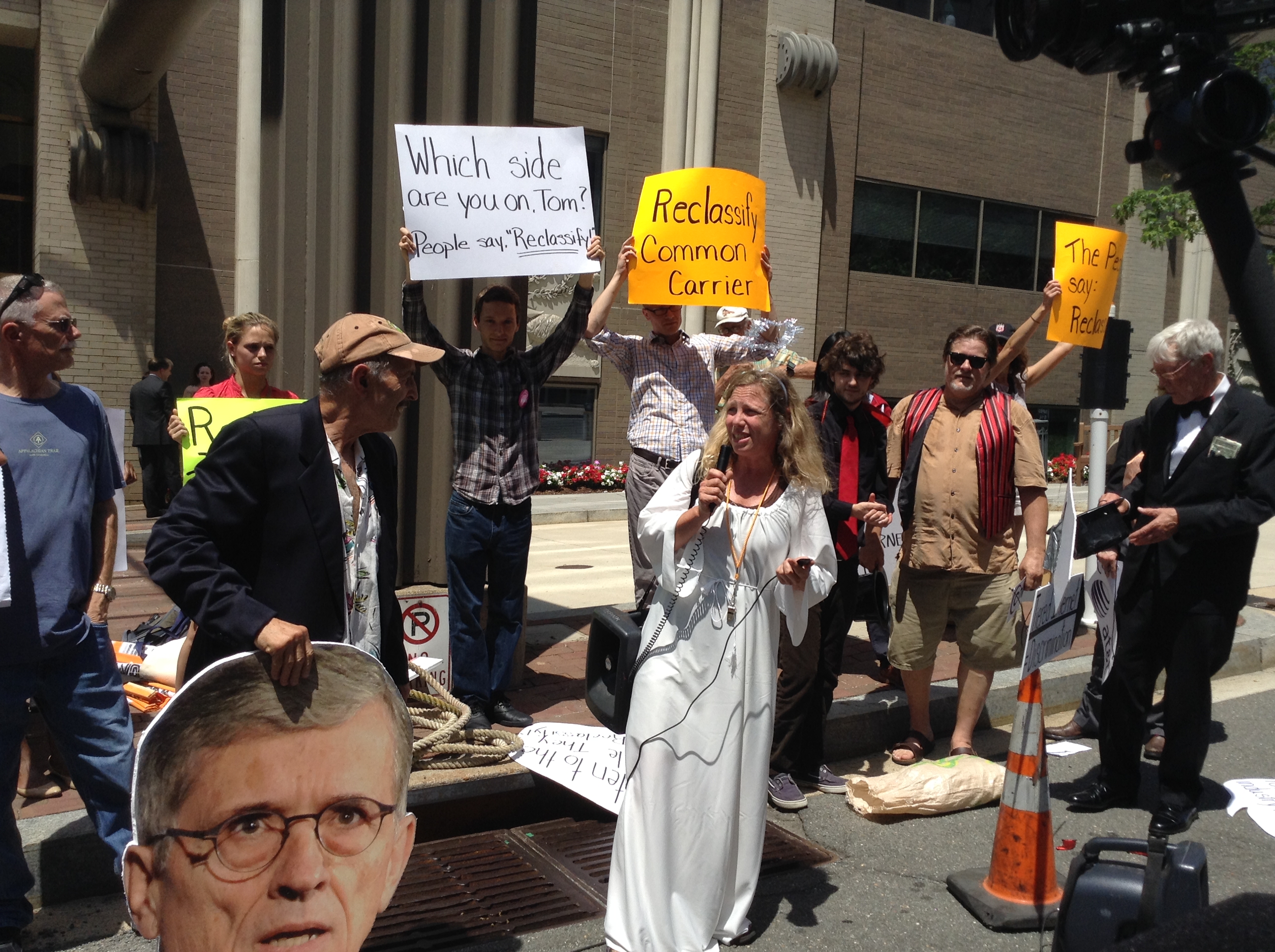Protesters staged a “musical” outside of the Federal Communications Commission Tuesday urging Chairman Tom Wheeler not to side with Internet providers, such as Comcast Corp. CMCSA -0.08% and Verizon Communications Inc. VZ -0.18% , on the issue of net neutrality.
Through July 15, the FCC is accepting public comments on proposed rules that would allow Internet providers to offer higher quality service to companies that are willing to pay an added cost. As of July 1 the comments have exceeded 130,000.
“He [Wheeler] has to pick a side,” said Kevin Zeese, an organizer with Popular Resistance, an organization that believes it is acting in the public interest by advocating for a free Internet. “Is he going to be on the side of net neutrality and treating the Internet as a public utility, or on the side of treating it as a commodity, where we could see lots of profits and a tiered Internet.”

Margaret Flowers, an organizer with Popular Resistance leads protesters in songs and chants outside of the FCC offices in Washington, D.C. Protestors originally attempted to position themselves within the entrance to the FCC before security limited access.
Around 30 people gathered outside of the FCC to watch and participate in three acts that involved songs, such as a version of “We Will Rock You” by Queen. At one point, protesters acted out a tug of war, pitting “the people” against costumed representatives of AT&T Inc T +0.03% , Verizon and Comcast. At the end the protesters celebrated as an activist playing “Chairman Wheeler” rejected a bag of money offered by “AT&T”.
While the proposed FCC rules would disallow a lowered quality of service, demonstrators expressed fear that adding a premium tier would inherently hurt standard service.
If the FCC implements its proposed rules, Internet providers will be able to sell a premium tier of service, in effect an Internet “fast lane” to companies. Earlier this year, Netflix Inc. NFLX +0.09% agreed to pay Comcast to connect directly to the Internet service provider’s network rather than through a third party.
The FCC proposed the new rules after the U.S. Court of Appeals for the D.C. Circuit sided with Verizon in a January court case. The court ruled that the FCC could not regulate broadband Internet under the rules of common carriers, a blow to net neutrality.
When regulated as common carriers, Internet service providers were required to carry information on their networks with no favoritism to one company over another. A company like Comcast could not cause Comcast-owned sites to load faster or slow down sites owned by competitors.
“If the Internet is allowed to become a two-tiered system with the richer and more powerful corporations benefitting from a superior access, I think that’s a problem that affects everyone,” said Lucy Ellison, a protester with a drama background.
A message left with the FCC wasn’t returned.

